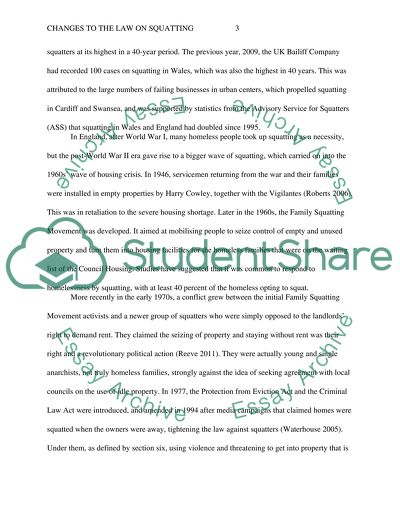Cite this document
(“Changes to the law on Squatting Essay Example | Topics and Well Written Essays - 3000 words”, n.d.)
Retrieved from https://studentshare.org/law/1404335-changes-to-the-law-on-squatting
Retrieved from https://studentshare.org/law/1404335-changes-to-the-law-on-squatting
(Changes to the Law on Squatting Essay Example | Topics and Well Written Essays - 3000 Words)
https://studentshare.org/law/1404335-changes-to-the-law-on-squatting.
https://studentshare.org/law/1404335-changes-to-the-law-on-squatting.
“Changes to the Law on Squatting Essay Example | Topics and Well Written Essays - 3000 Words”, n.d. https://studentshare.org/law/1404335-changes-to-the-law-on-squatting.


